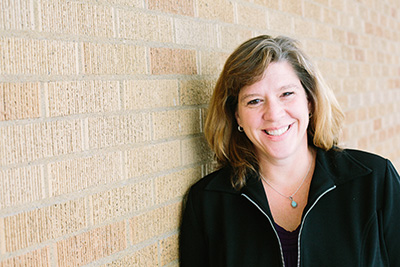WSU Professors Study How Literature Increases Empathy
OGDEN, Utah — Cozying up with a good book may provide more than an escape from reality. An ongoing, interdisciplinary study by two Weber State University professors found that literature could also improve a reader’s ability to empathize.
English professor Sally Shigley and neuroscience professor Lauren Fowler brought together humanities and science to study a possible connection between literature and empathy. Their results showed that reading literature is a good way to elicit empathy.
“When you are reading something, you can assume the role of the main character,” Fowler said. “Putting yourself into that position helps you truly feel what that character is feeling.”

Sally Shigley
During their research, Shigley and Fowler used the Pulitzer Prize-winning play “Wit,” about a woman being treated for stage-four cancer. The story directly addresses the issue of empathy. It was also made into a movie, which allowed Shigley and Fowler to expand their research by studying which adaptation had the biggest impact on people’s empathic responses.
The study gathered data from at least 200 subjects. Some participants were gathered from Psychology 1010 classes, while others were pre-health students or practicing physicians.
Study participants read “Wit” and were asked to report when they felt an emotional response. At the same time, physiological signs of empathy were measured by monitoring the activity of certain facial muscles, and galvanic skin response machines were used to measure physical responses such as skin temperature and heart rate.
After the participants finished reading, Shigley and Fowler compared their perceived empathic responses to their physiological responses. The results of their study demonstrated that reading increased empathic responses in test participants. It also revealed some discrepancies among the groups that participated.
“There was a huge difference between the groups,” Shigley said. The students unassociated with the medical field had perceived and physiological responses that correlated. But the pre-health students showed some differences between their perceived and physiological responses, and the physicians showed even more differences.

Lauren Fowler
“They would push the button, but there weren’t physical signs of empathy,” Fowler said. “The farther up we got with the line of physicians, the less their bodies responded.”
Shigley and Fowler don’t automatically attribute these results to a lack of empathy in the medical field, but rather to a product of habit. While empathy has been shown to benefit patients, it’s not always beneficial for physicians.
“Empathy really is feeling what somebody else is feeling,” Fowler said. “Usually, that’s a good thing. But it can be associated with burnout, in nurses especially.”
Shigley has taken the research to several conferences, including one at Oxford University in England. She said the information learned from the study can benefit more than just healthcare providers.
“Literature allows you to put yourself in somebody else’s shoes in a very portable, very safe sort of way,” Shigley said. “Different parts of your brain light up when you’re reading literature than do if you’re reading a textbook or if you’re reading a newspaper. In an era where empathy is perhaps very much necessary, literature is a place to go find a kind of connection that you can’t get with other kinds of reading.”
Shigley and Fowler received financial support for their research from a Hemingway grant. WSU’s Office of Undergraduate Research has also helped students conduct their own studies that stemmed from Shigley and Fowler’s initial work.
In future research, Shigley and Fowler plan to continue looking at empathy and literature. Their next step is finding out how culture impacts empathy. They want to use literature to look at how things such as poverty, language barriers or disabilities interfere with empathy.
Visit weber.edu/wsutoday for more news about Weber State University.
For high-resolution photos, visit the following links:
wsuucomm.smugmug.com/Press-Release-Photos/2017-photos/January-2017/i-FfMKqph/A
wsuucomm.smugmug.com/Press-Release-Photos/2017-photos/January-2017/i-sPqwttP/A
Rachel Badali, Office of Marketing & Communications
801-626-7295 • rachelbadali@weber.edu- Contact:
Lauren Fowler, psychology and neuroscience professor
801-626-7620 • lfowler@weber.eduSally Shigley, English professor
801-626-7617 • sshigley@weber.edu